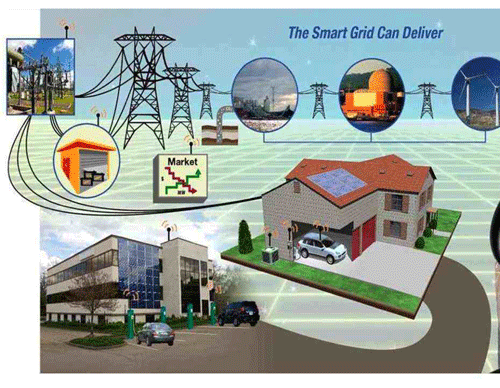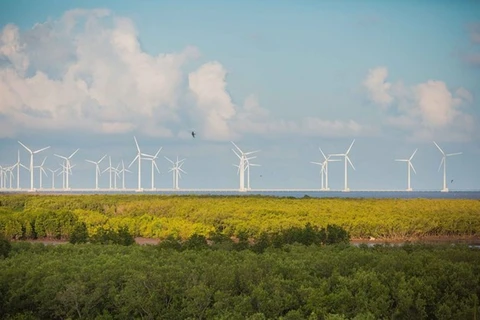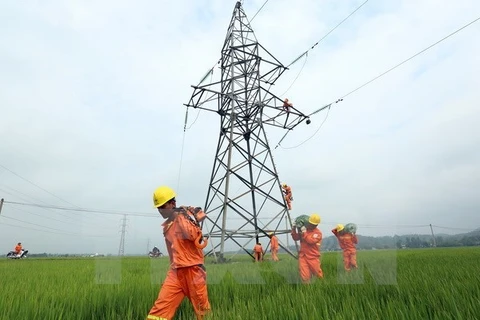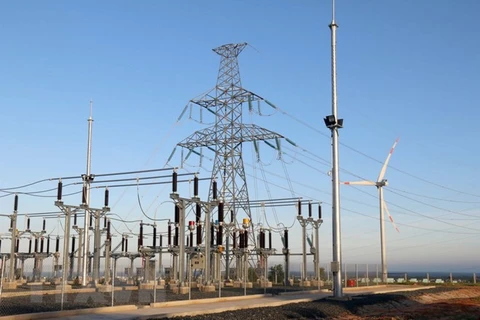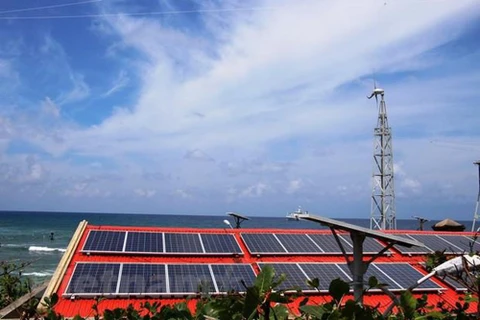 The Smart Grid Week Vietnam 2019 will last until December 5 with a series of conferences and symposiums (Photo: VietnamPlus)
The Smart Grid Week Vietnam 2019 will last until December 5 with a series of conferences and symposiums (Photo: VietnamPlus)
Hanoi (VNA) – The Smart Grid Week Vietnam 2019 has been underway in Hanoi since December 2, featuring a series of conferences and workshops for government officials, national and international professionals and partners as well as associations.
The Electricity Regulatory Authority of Vietnam (ERAV) under the Ministry of Industry and Trade (MoIT), and the Deutsche Gesellschaft für Internationale Zusammenarbeit (GIZ) GmbH in Vietnam are hosting the week. This is part of the Smart Grids for Renewable Energy and Energy Efficiency project which is being jointly implemented by the two authorities.
Speaking at the opening ceremony, Director General of the ERAV Nguyen Anh Tuan said smart grid development is a right direction of Vietnam, stressing that after nearly seven years of implementation, with the application of modern technologies, the scheme has contributed to improving the quality and reliability of the country’s power supply.
Along with a general trend towards clean and renewable energy development, the application of the smart grid technology is one of the effective solutions to integrate and operate stably new energy sources, as well as promote the development and increase the proportion and efficient use of renewable energies, thus contributing to environmental protection, national energy security, and sustainable development, he said.
Tuan noted that Vietnam has witnessed significant growth in its power sector, which has made an important contribution to the country’s industrialization, modernization, and socio-economic development.
According to a report by the ERAV, the electricity demand in Vietnam averagely increases about 11 percent per year, and after every six to seven years, the demand will double.
Meanwhile, the smart grid uses digital technology and two-way communication information to closely monitor and manage the transmission of electricity from all power sources to meet the demand.
Sebastian Paust, Head of Development Cooperation at the German Embassy in Vietnam, said Vietnam has seen impressive growth in the share of renewable energies in its electricity production this year.
However, to reach a higher proportion, Vietnam should take more measures, especially promoting the integration of solar and wind energy into the grid, he said, adding that in Germany, nearly half of electricity comes from renewable sources (standing at 47 percent in the first half of 2019), mostly from wind and solar energy.
Paust said his agency would like to share international experience in implementing technological and technical solutions to increase the proportion of solar and wind power in Vietnam.
After the official opening day, the second day of the Smart Grid Week, entitled “Power System Innovation Day”, concentrated on emerging power system technology solutions for a modern and sustainable future power system.
Participants at the four-day event will focus their discussion on trends, visions and measures to sustainably develop energy resources in Vietnam, and share relevant knowledge and experiences to increase the share of renewable energy in the power grid and promote energy efficiency.
Smart grid is a pilot solution in many places in the world for power management, from manufacture, transmission, distribution to the end-customers.
In Vietnam, the Prime Minister issued a decision in November 2012 approving the roadmap of the smart grid development with the aim of improving power supply quality and reliability; encouraging safe and effective use of electricity; boosting effective exploitation of natural energy resources, and promoting environment protection and sustainable socio-economical development./.
| A smart grid is an electricity network enabling a two-way flow of electricity and data. It can use real-time monitoring to modify and tune itself to an optimal state of performance, delivering electricity evenly — even during peak hours — and anticipating problem areas and service disturbances. It can also isolate parts of the electrical network that are at risk of failure to prevent small-scale and brief interruptions from turning into region-wide and long-term blackouts. |
